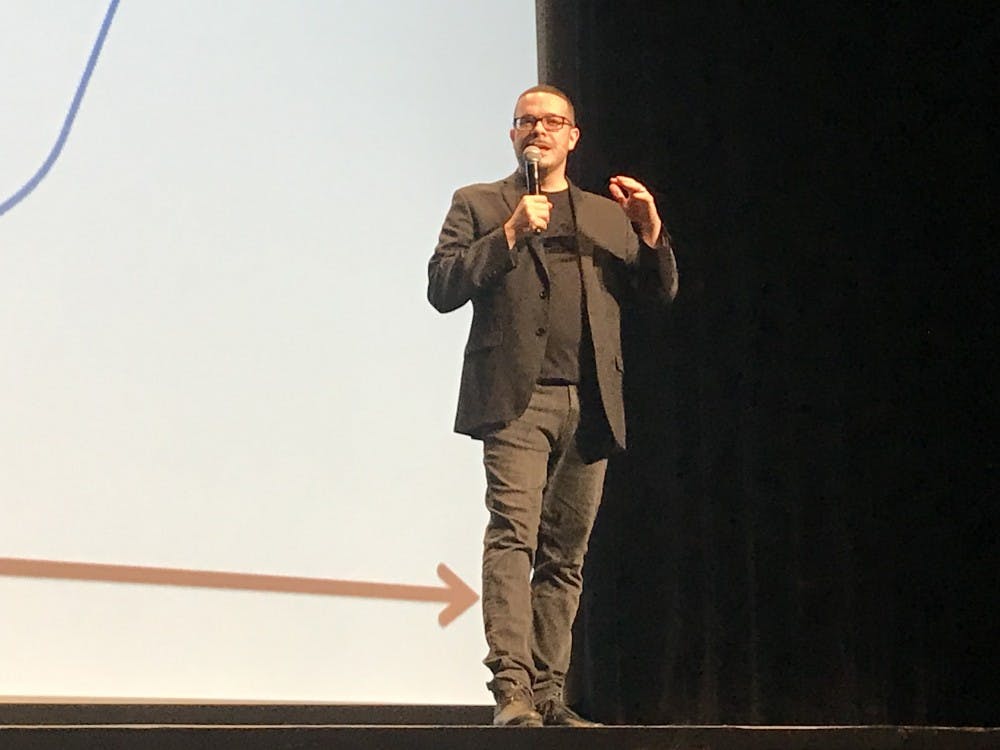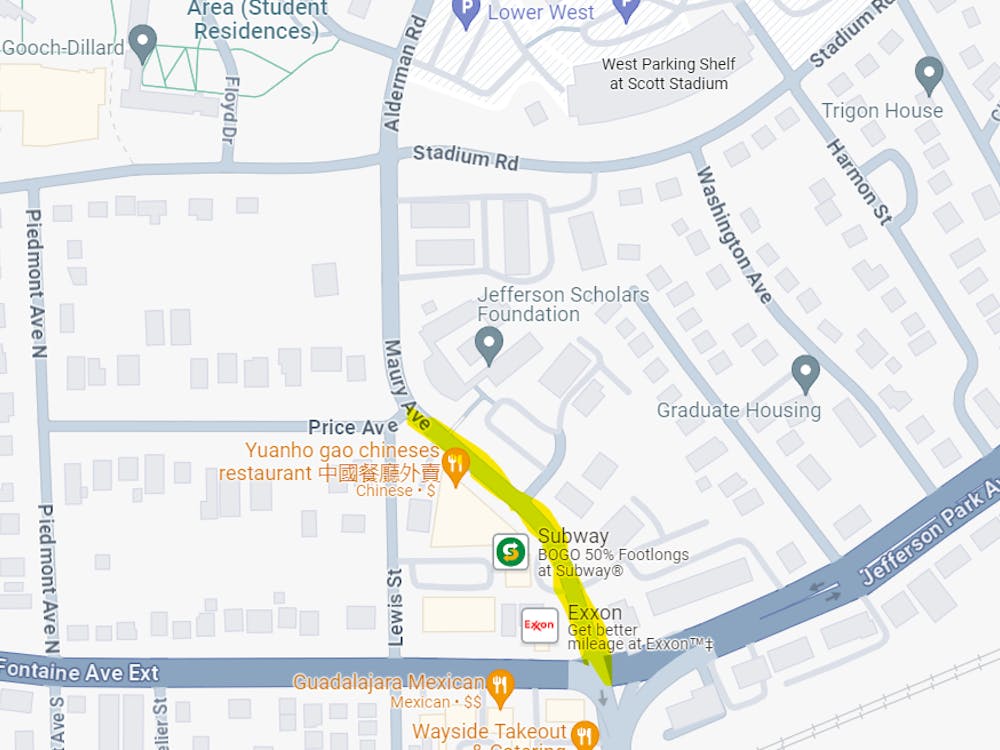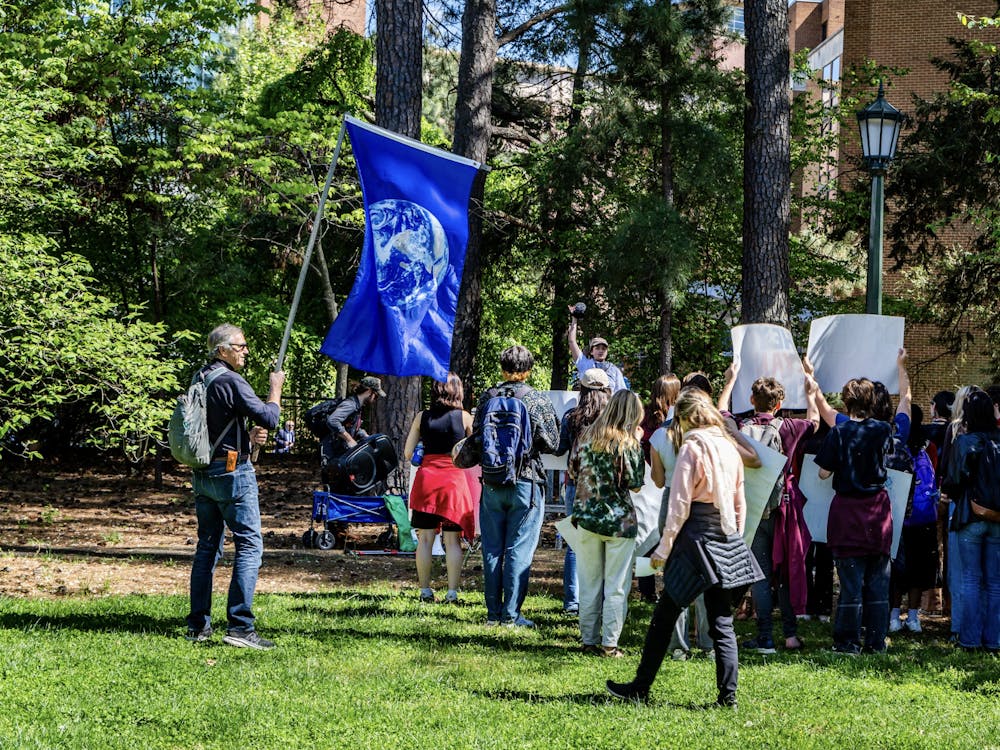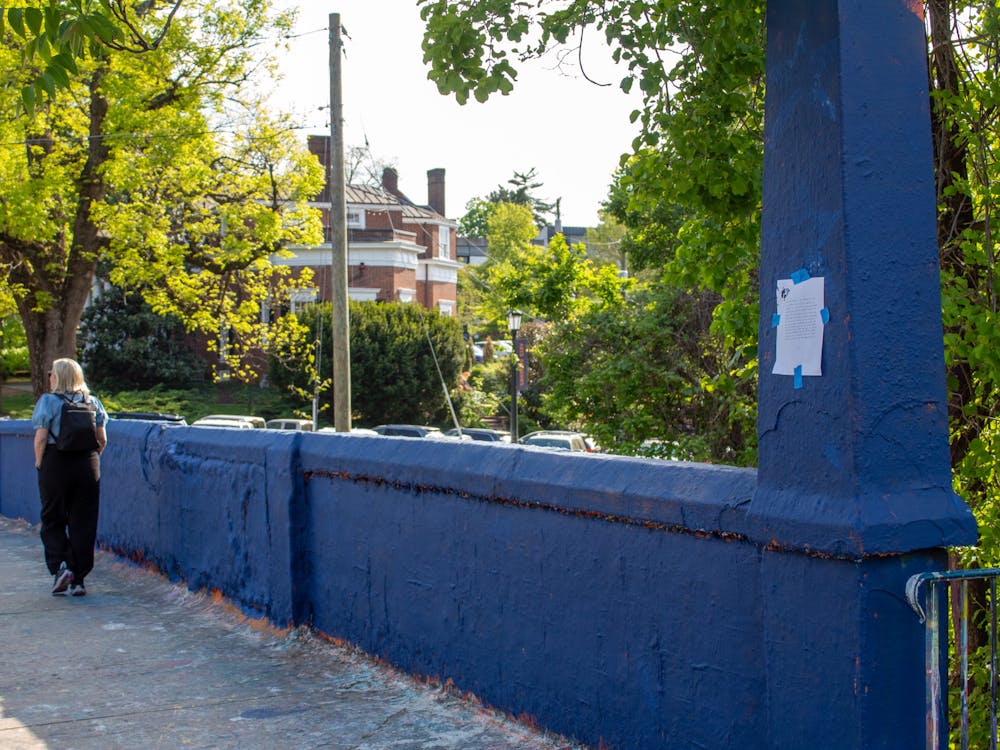Journalist and civil rights activist Shaun King delivered a talk about modern day civil rights in the aftermath of the events of Aug. 11 and 12 in Charlottesville at the Paramount Theater Monday night. The event was hosted by the Charlottesville Legal Aid Justice Center.
King is a columnist for The Intercept and is currently the Writer-in-residence at Harvard Law School's Fair Justice Project. King has written extensively on the topics of discrimination, police brutality, the prison industrial complex and social justice in the U.S. during his career.
King has also been intimately involved with the aftermath of the violent white nationalist demonstrations of Aug. 11 and 12 in Charlottesville through his efforts to personally identify the attackers of DeAndre Harris, a counter protester who was assaulted by demonstrators Aug. 12.
During her introduction of King, Mary Bauer, executive director of the Legal Aid Justice Center, said that he has been instrumental in the arrests of white supremacists.
“It was his efforts that led to the arrest of the men who attacked DeAndre Harris,” Bauer said. “It was he who helped identify other white supremacists who punched anti-racist protesters, he did that when in others in power concluded it was too hard … and justice could not be achieved.”
“Shaun King is a hero to many of us in this community,” Bauer added, amidst cheers and applause from the audience.
Bauer said that the white nationalist events in Charlottesville allowed residents to see the underlying racial inequality present in the city.
“Many people learned, perhaps for the first time, what others in Charlottesville already knew — that despite our reputation for progressiveness and diversity, this town was built on a deep foundation of racial injustice and those injustices remain,” Bauer said.
Bauer also asked audience members who had protested white supremacy to stand and be recognized, prompting applause from the audience.
“I would like to recognize the brave folks in this audience who stood up to nazis and other white supremacists during the events of this summer,” Bauer said. “Our anti-racist protesters were tear-gassed, punched, beaten and worse for vehemently declaring that hate is not welcome here.”
Upon taking the stage, King received a lengthy standing ovation from the audience. King said he felt a personal connection to members of the Charlottesville community who protested the white nationalists demonstrations.
“I feel a deep, painful kinship with so many of you who have fought back against bigotry and racism here,” King said. “I find myself deeply frustrated as there are still several men who brutally attacked DeAndre that we have not been able to identify.”
In discussing his efforts to identify the attackers of Harris, King said he expected Charlottesville and Virginia State Police to thoroughly investigate the matter.
“We live in this age where we are increasingly cruel to one another, we dehumanize one another,” King said. “I made the mistake of thinking that the Charlottesville Police and the Virginia State Police were going to go hard for it [the investigation].”
In order to place the events of Charlottesville into context, King drew upon the thought of German historian Leopold Von Ranke in describing human development as neither linear nor inherently progressive. He cited the recent white nationalist events and increased instances of unarmed African-Americans being killed by police in 2016 as evidence that regression occurs as well.
Nonetheless, King said that humans are inclined to believe that progress is inevitable and continuous, resulting in opposition to the idea of regression.
“There is something about human beings that wants to believe it's true,” King said. “There's something painful about accepting that this is actually how time works.”
In reference to President Donald Trump, King said the President was not the sole cause of contemporary racial inequality, but a byproduct of a pre-existing racial reality.
“A lot of people want to blame this on Donald Trump,” King said. “He is a symptom of the reality that the quality of our humanity was already very problematic and painful.”
King answered a number of audience-submitted questions specifically pertaining to his efforts to identify the attackers of Harris and also addressed the current racial climate in Charlottesville.
In response to a question concerning potential methods to increase African-American engagement in Charlottesville, King cited Nikuyah Walker’s election to City Council last month as an example of successful grassroots activism. Walker and Vice Mayor Wes Bellamy were in attendance at the event.
“I was watching closely the City Council race, they didn't expect it to go like that,” King said. “I think your local city council race is an example of that, of how when people organize and are energized, they have a plan [and] stick to it.”
In response to a question asking whether he had been asked to or had identified counter-protesters for the FBI, King said he had only identified white supremacists for the agency.
“Our primary objective initially was to help DeAndre Harris and his family,” King said. “I have not helped — openly or privately — any law enforcement or any private agency or media organization to identify anybody other than neo-Nazis and white supremacists.”
King also said that the FBI agents he did communicate with claimed to rely mostly on research conducted by King and posted to his Twitter feed.
“When we first started attempting to identify the violent white supremacists and neo-Nazis, our thought was, foolishly, any minute now someone else is going to take this investigation over,” King said.
King lamented that the unidentified attackers of Harris would escape punishment due to a lack of law enforcement investigation.
“I’m also keenly aware that if me and the group of people I'm working with don't find them, they won't be found which is very discouraging,” King said. “I know had those men been Muslims, had those men been immigrants, had those men been black, they would have been identified and the authorities would not have stopped.”





